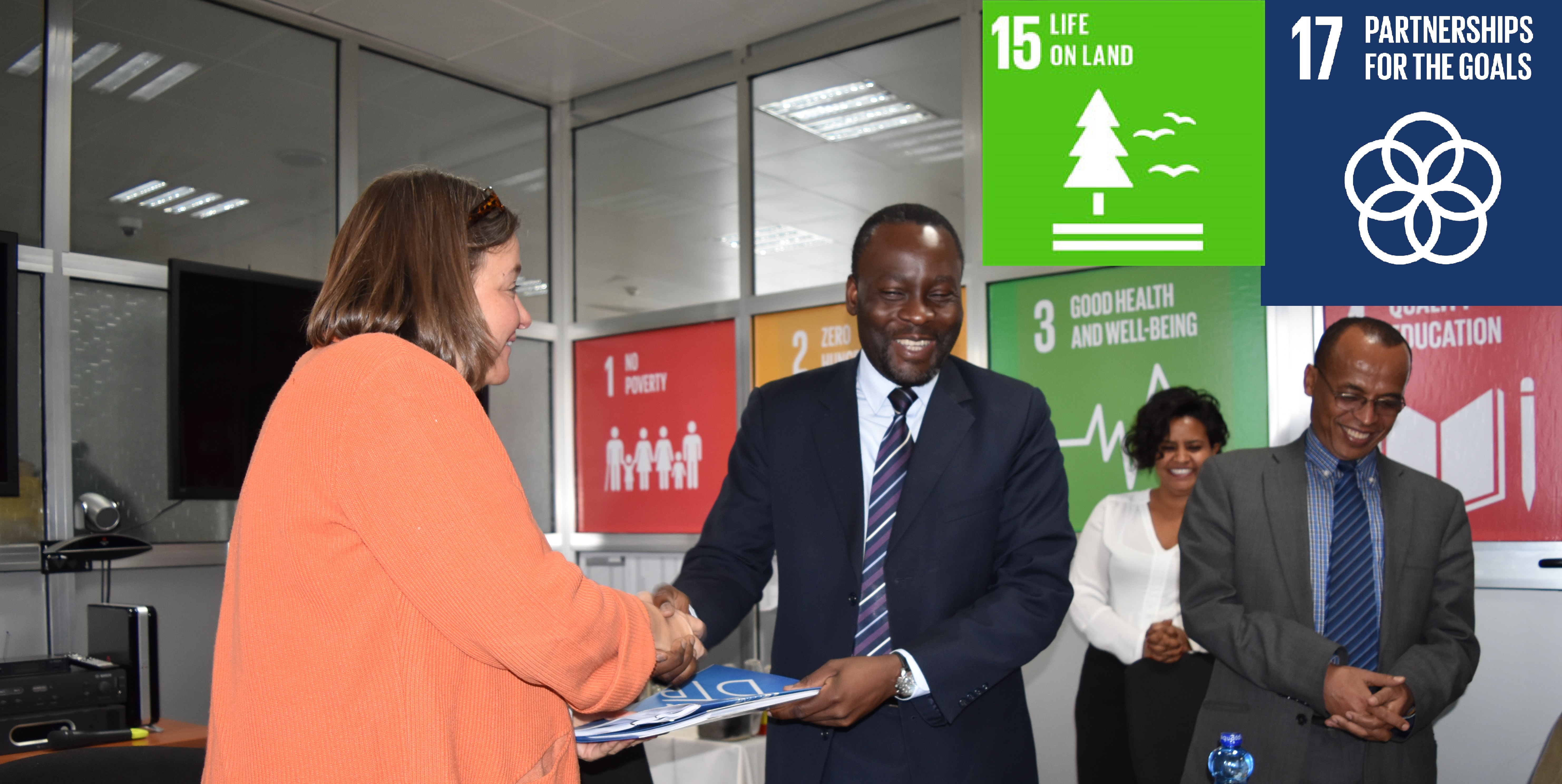Sweden has signed an agreement with UNDP pledging US$ 5 million to support Ethiopia’s forest sector development programme.
Ethiopia’s climate resilient green economy, set to be achieved by 2025, is closely tied to the country’s ability to strengthen the capacity of local institutions and communities.
UNDP has been at the forefront of forging partnerships with countries that promote green energy innovation.
Overall, the forestry programme conceived in this agreement requires US$ 22 million and will be implemented by the Ministry of Environment, Forest and Climate Change (MEFCC) of Ethiopia over a period of three years from 2016 to 2019. UNDP contributed US$ 500,000 to the programme and in 2015 mobilised a further US$ 10 million from the Royal Norwegian Government.
Signing the agreement with UNDP, Ms Annika Jayawardena, head of development cooperation at the Embassy of Sweden in Ethiopia explained that, ‘Sweden’s investment in building climate resilience is a renewed interest in its support for Ethiopia’, and that partnering with a pioneer organization like UNDP strengthens capacity for achieving longer term impact.
Forest resources play a critical role in the livelihoods of many Ethiopians living in rural and semi-urban areas including in terms of access to firewood, traditional medicine, construction materials, small-scale agroforestry enterprises.
It is projected that over the next 10 years, demand for wood in commercial real estate construction, biomass projects and other infrastructural development will require the plantation of 300,000,000 more trees. Moreover, heavy dependence on forestry resources has affected soil fertility in parts of Ethiopia and also resulted in water shortages.
Through this programme, MEFCC bureaus located in regional centers across Ethiopia will develop the necessary institutional capacities to ensure sustainable management of forest resources.
Some of the main pillars in the intervention include institutional and forest sector development, involvement of the local private sector and honing in on science and technology to transform the forestry sector of Ethiopia.
According to Dr Tefera Mengistu representing MEFCC, government has prioritized fast tracking climate projects which are showing remarkable results in communities in rural Ethiopia.
Ethiopia’s climate resilient green economy (CRGE) strategy drives the country’s REDD+ implementation efforts and environment milestones set out in the national Growth and Transformation Plan (GTP II).
The support for Ethiopia’s forest sector will also enable MEFCC to critically examine how to improve the forest resources’ support for meeting the country’s economic goals and societal needs while mitigating adverse climate change effects as the sector advances.
Communities will benefit through accessing income generating alternatives such as capacity to grow trees in a more regulated environment that benefits both the producer and consumer including emerging wood processing industries. Where applicable, local communities will be organized into cooperatives that deliver raw materials to wood-based manufacturers.
The intervention will also support reforestation efforts, critical for rehabilitating Ethiopia’s highlands which are the sources of water that sustains livelihoods downstream all over the country and beyond. A supplementary benefit is carbon dioxide emission reduction as deforestation has been proven to release some of the highest amounts of green-house gas into the Ethiopian atmosphere.
The implementation of this project will also prove to be an advantage to the country’s tourism, water, biodiversity and wildlife sectors through better land management and saving the country’s natural forests.
UNDP’s country director Mr Samuel Bwalya thanked the Government of Sweden reflecting on a partnership with UNDP that dates back to the year 2007. He added that this financial support ‘is especially timely and catalytic as it comes at a time when, through the support of the forestry programme, Ethiopia is finalizing the development of the 10 years master plan for the country’s forest sector.’
UNDP is providing technical assistance including helping develop community forestry schemes for drawn from UNDP’s experiences in other countries.
While the return on investment from forestry resources will take up to 5 to 10 years to materialize, UNDP and its partners including the Royal Government and the Government of Sweden will continue to channel targeted support to MEFCC and the wider CRGE strategy of Ethiopia.
The intervention aligns with SDG 15 sustainable life on land, which involves protecting, restoring and promoting sustainable use of terrestrial ecosystems, sustainably managing forests, combating desertification; halting and reversing land degradation and curbing biodiversity loss.
Forest Sector Development project document
Assessing the Economic Value of Ethiopia’s Forest Ecosystem
Building Capacity to conserve Ethiopia’s Forestry to promote livelihoods & protect biodiversity

 Locations
Locations
